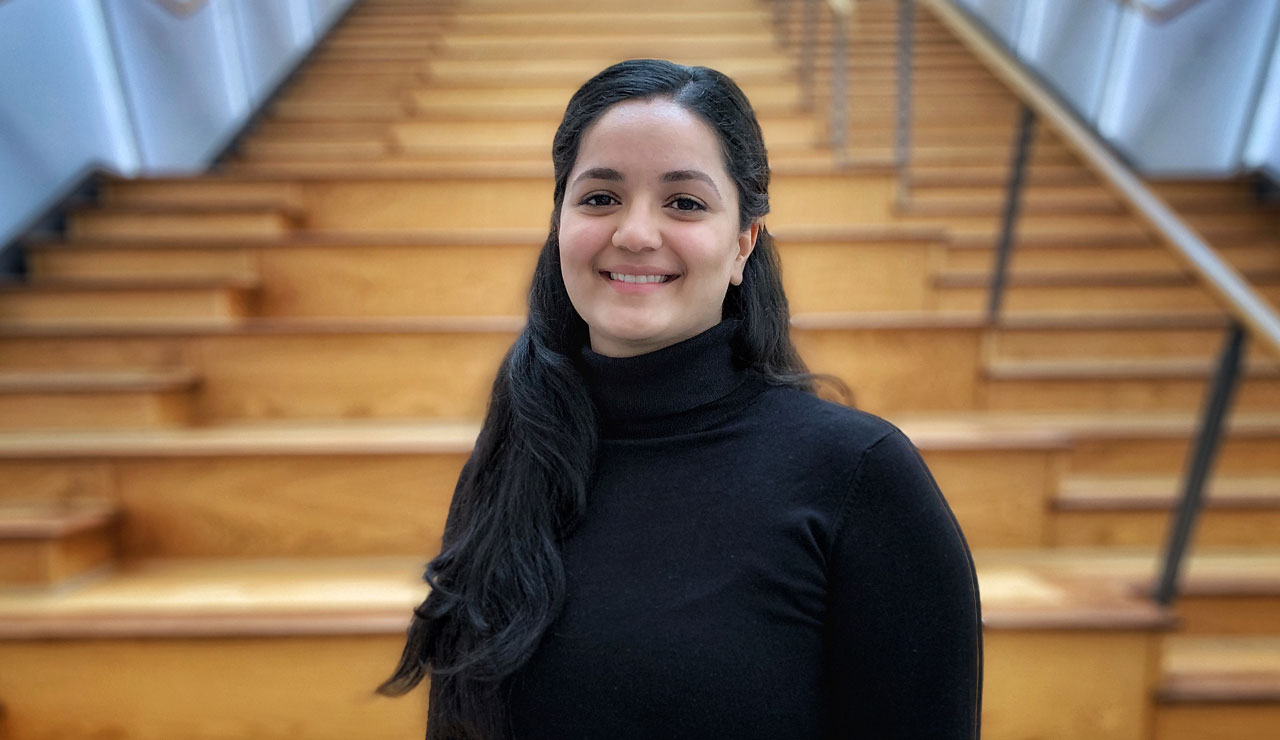Simran Ghoman, '21 MSc

Student: Simran Ghoman, MSc
Program: M.Sc.
Supervisors: Georg Schmőlzer
What is your background and what led you to graduate studies in the Department of Pediatrics at the University of Alberta?
I completed my undergraduate studies at the University of Toronto, where I pursued a degree in human biology, psychology and art history. I was interested in gaining more experience in leading a clinical research project, and found the graduate studies program in the Department of Pediatrics at the U of A to be a very supportive and energetic environment for my learning.
What can you tell us about your research?
My thesis is titled Serious games to train and assess neonatal resuscitation providers. The sound of a newborn baby crying is a wonderful sign that they are healthy and breathing. However, around 10 per cent of newborn babies (more than 13 million babies worldwide each year) need help to breathe at birth. To help these babies, health-care professionals need practice to be prepared to provide lifesaving care (called neonatal resuscitation). Unfortunately, they often don't get as much practice as they need because of time and resource constraints.
To overcome these challenges, I helped develop a board game and digital simulation game (called RETAIN) to teach neonatal resuscitation, and tested it out with experienced health-care professionals. In my research, I observed that training with the games improved neonatal resuscitation providers' short- and long-term knowledge retention and knowledge transfer, and functioned as an evaluative tool to assess their performance.
How did the Department of Pediatrics prepare you for the next step in your career?
My time with the Department of Pediatrics has been an incredibly enriching chapter in my career. Beyond gaining a set of practical skills in conducting clinical research studies, I also benefited from deepening my critical thinking, communication, and leadershipーand gained a network of supportive friends and colleagues.
What challenges did you face while pursuing your degree?
Being a novice to this field, I had to gain confidence in my ability to contribute to this area of clinical research in a meaningful and relevant way. The first few months of the program were a little overwhelming as I attempted to immerse myself in the literature. Once I began to understand that a graduate student was not an expert researcher, but rather a researcher in training, I was able to better leverage the support and knowledge of my team to lead a wonderful research project.
Do you have any tips for new graduate students just beginning here or those who are nearly completed?
For new students, take the initiative to reach out and make connectionsーthere are wonderful opportunities here to learn and be successful, and they must be met with equal enthusiasm and work ethic. For those nearing the end of their degree, reflect on what you’ve learned (it really is a lot more than you think!) and try to share as much of that wisdom with others as you can.
Has your journey's destination changed from what you thought it would be?
I entered the program with the aim to develop my research skills, explore the pediatric clinical environment, and gain clarity on whether or not I was interested in pursuing a career in health care. With the tremendous support of my mentors (especially my co-supervisors Georg Schmőlzer and Maria Cutumisu), and strengthened by my success in navigating new and interesting challenges throughout my graduate studies, I ended the program with the confidence and enthusiasm to continue on my journey in medicine.
What will you miss about your time here?
The people! I’ve met some of the most kind, intelligent, funny and sincere people in my time with the Department of Pediatrics. I look forward to crossing paths again some day.
Where are you headed next?
I started the next step of my training at the University of Calgary medical school in July.